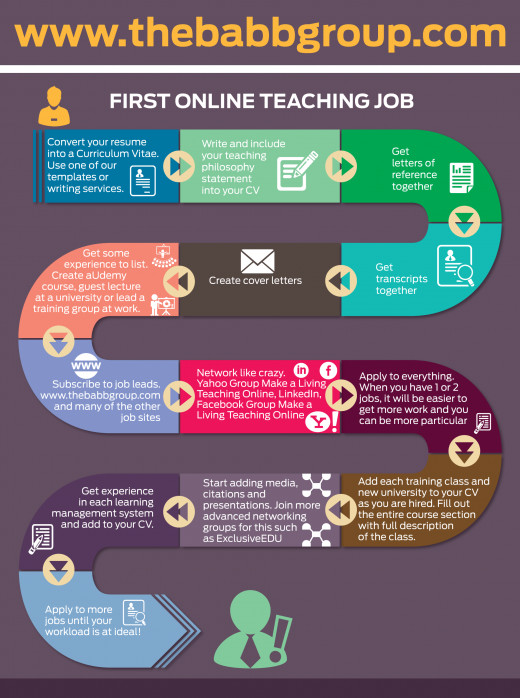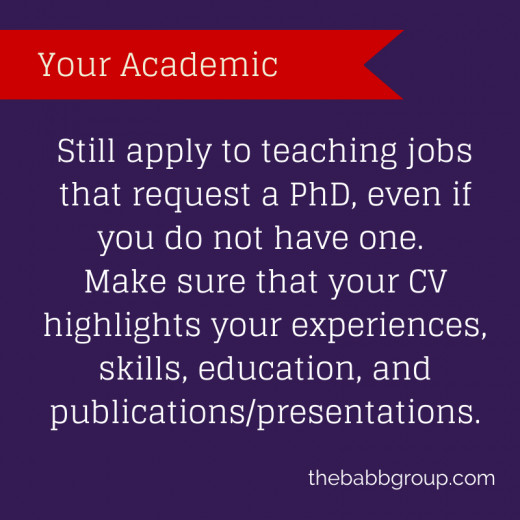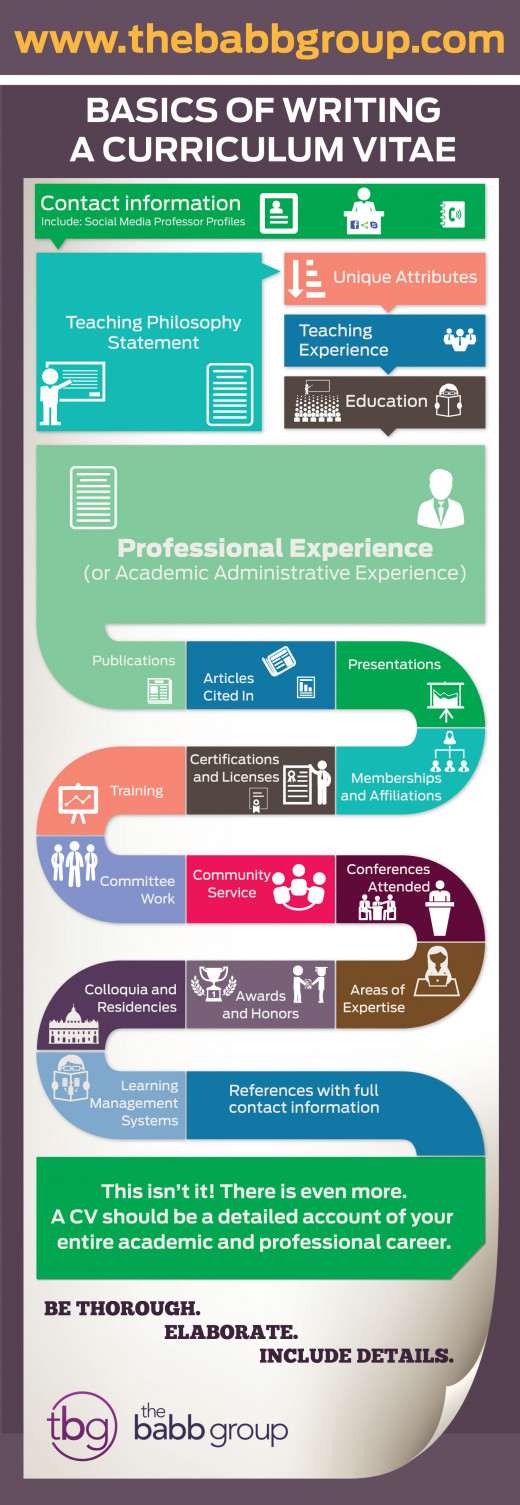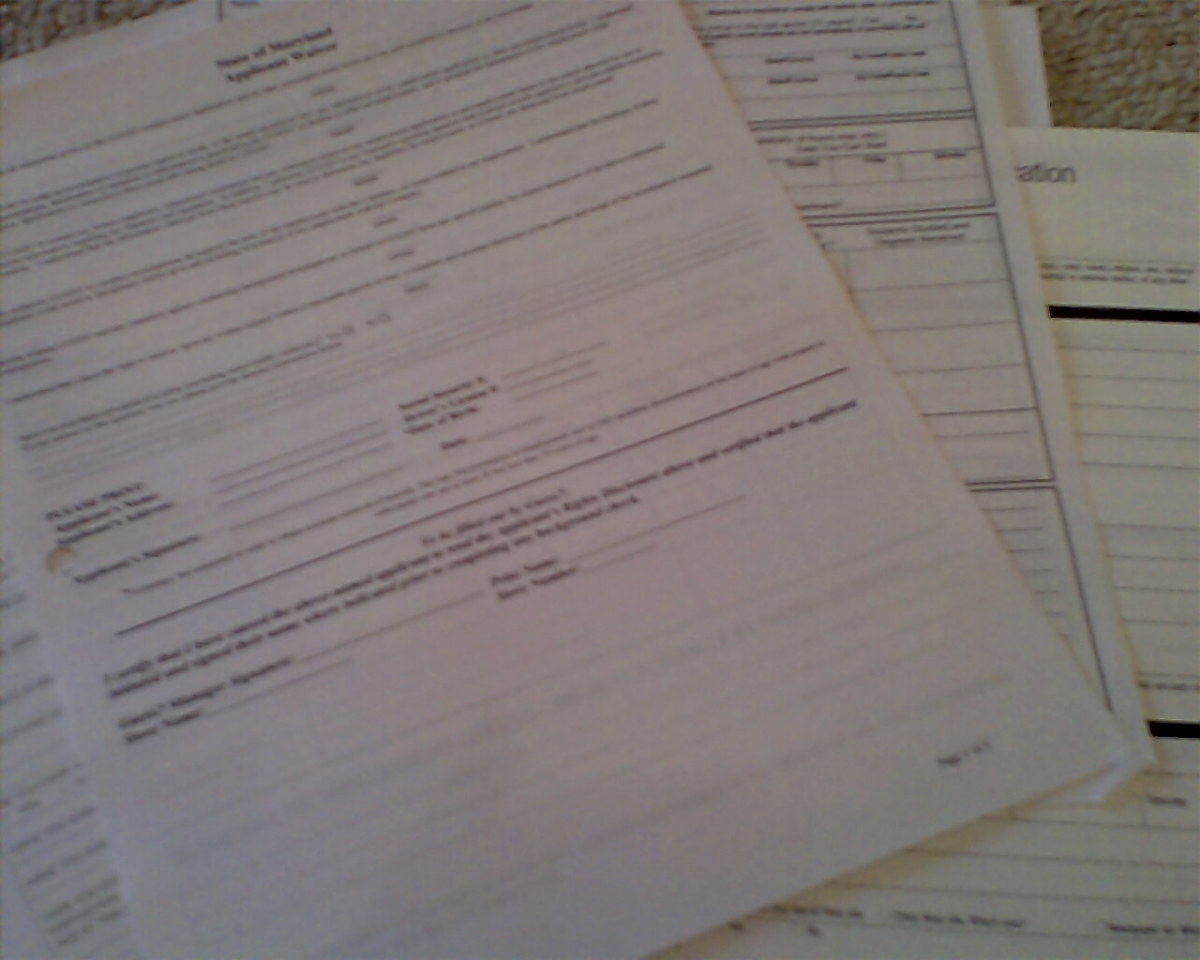Getting Your First Online Teaching Job
Introduction to Online Teaching Jobs
This is the beginning of a multipart series on getting online teaching jobs, particularly if you are a new educator, a recent graduate or just do not have a lot of online teaching experience. The infographic below shows the general process that faculty must go through to get online teaching jobs. In the coming weeks we will outline our 13 steps towards finding your first online teaching job and developing this into the start of your online teaching career. Consider this very first post an overview!
These simple steps will make a daunting task a bit easier; breaking it down into components you can tackle every day to achieve your goal. As the co-author of Make Money Teaching Online, a lot has changed since 2007 when we wrote the book published by Wiley. Many of the principles are still the same; however the market and the ways in which a faculty member finds work is a bit different than it was then.
All candidates looking for online teaching jobs will usually go through a very similar process to get their first position. Landing the first job is by far the hardest; after that, getting new teaching positions becomes much easier because you can show your experience.
Infographic - Getting an Online Teaching Job

Putting Online Education Rumors to Bed!
But first let me put some rumors to bed. I hear almost every day that you need a doctoral degree to teach. This is absolutely not the case; in fact most of our clients do not have doctoral degrees (and yes, they get work!) and many of us began teaching with our masters. Even positions that advertise “doctorate required” will sometimes hire someone with a master’s degree. I tell my clients to apply to everything; doctorate required noted or not. Is it true that having a doctorate makes your work to get a job a bit easier? Yes that is true. Not having a doctorate does not eliminate your chances to teach. Another rumor: if you have no experience it’s too late now. Absolutely not the case and more on that later in this post.
Masters or Doctorate?
When You Got Your First Online Teaching Job, What Was Your Highest Degree Earned?
How Long Will It Take?
In general from my experience, you can expect to apply to 80 to 120 positions to get your first job. If you apply to all of our Babb Group job leads and the leads you find elsewhere, this will take between 5 to 7 months on average. Some faculty land their first job in weeks; others can take far longer. Some of it is timing and your discipline (the more unique or niche the discipline the more likely you will be hired more quickly when a job pops up). The key is to be consistent and apply often and to have your educator package completed and available.
Apply Anyway!

What Do I Need to Get Started?
So what exactly is the educator package? This is what we call a package that you will need to apply to jobs. I will be elaborating on all of these areas far more thoroughly in posts that follow. In general, the educator package will include: your CV, a cover letter, unofficial transcripts, 3 letters of recommendations, your statement of teaching philosophy both in the CV and as a separate file, and 3 references in your CV and in a separate file. When you have these documents available, reviewed and fine-tuned, you are ready to begin applying to teaching positions. If you are having trouble with your CV or cover letter or just want someone to review it, we have options available for our clients.
Your teaching philosophy should have at least two parts. In the first part or paragraph, I recommend that you identify what your theory of education is. Why does education matter to you? Why do you want to teach? How are you qualified to do so? How do you engage students? In the second paragraph, my recommendation is to explain how a Dean or faculty reviewer would see evidence of your philosophy in the classroom. How do you put into practice what you believe and how would someone else see it? Take some time to think through this and write it thoroughly and elaborately. Try to keep it to 2 to 3 paragraphs.
The next most common question I am asked: “I have no experience. What do I do? Will anyone hire me?” Short answer: yes they will and yes you have options. First, not every job will require experience as an online educator. We all had to start somewhere and it was with no experience! However, chances are you have something you can add to your CV in the teaching experience section. Here are some examples: guest lecturing at a local college, teaching others in the workplace, being a workplace leader and teaching others how to use a new technology, software, master a new process etc., or even creating a course on a system like Udemy which will give you both course development and teaching experience (and you will be paid!) If you enjoy on ground lecturing, chances are just about any college educator at a local community college would be happy to give you a platform for an hour or two. List this in your teaching experience section.
I will continue to add to this and elaborate on getting that very first online teaching position!
The Online Teaching CV!
CV Writing for online teaching and academic job positions requires modifying your existing resume or CV into a document that represents all of your professional, academic and community achievements in one comprehensive document. You should not worry about the length of the CV Document, but about how detailed and comprehensive it is.
In my post 21 things to include in your Online Teaching CV, I documented many things you may not have been aware of that should be included in your CV. I recommend starting off with your contact information and then leading with your teaching philosophy statement. Why? Two reasons. It will contain key words for HR systems, and deans will see it without requiring a separate document. More on that later.
I recommend listing unique attributes next and then following up with your experience, professional experience, education and the other items relevant to your online teaching career listed in my 21 items blog post. You may want to review the post "21 Things Your CV Needs for Online Teaching Jobs" for that list of items. Try to be as thorough as possible. I recommend adding 5 to 8 attributes that make you stand out from other candidates. Don't worry if this isn't in the area of online education. Military experience, leadership experience, expertise, learning management systems, education, community service and more all make a difference. Just like your teaching philosophy (which I will cover more in depth next week) it is important to really try to dive into what unique skill set you bring to your teaching career. Essentially this is an overview of "why hire me?"
As you move through the rest of the CV, check out the infographic. This covers a lot of what you should be thinking about, including presentations, ways you've advanced your expertise in an area, your dedication to lifelong learning, community service, military service, areas you have 18 graduate hours in, learning management systems, citations in articles or publications, media, scholarly publications, professional publications, residencies and colloquium attendance or presentations, extended education and more.
The infographic presents the basics of CV Writing. This is hardly all-inclusive, but gives you a good starting point and perhaps a fresh look at the process. One of the benefits to working off of a thorough template or with a CV Writing professional is that often clients discover they have far more experience and items to list than they thought! They just weren't sure what to include. Sometimes the brainstorming process is very important and leads to a far better, more thorough CV.
CV Writing Infographic

Teaching Philosophy Statements
A teaching philosophy statement, whether standalone or integrated into your CV, is essentially a statement indicating what your theory of education is, what model you follow, why education is important to you, and then how this is put into practice in your course room. There are two types of teaching philosophy statements. The first is the longer philosophy statement that is often a full page.
I recommend starting the first paragraph with an introduction to your philosophy and beliefs about education. You can integrate theory about instruction into this initial paragraph if you like. In the second paragraph, you can elaborate more on your teaching style, how education has influenced you and why you find it valuable to others. A good thing to ask yourself is, "if someone came to me asking if they should pursue an education, how would I answer and why?" Remember you should be writing this in first person and do not feel as though you have to leave emotion out of it. Showing passion for education is good in my opinion and I have seen it positively correlated with getting teaching jobs. Next, if you are comfortable, I suggest explaining a bit about why and how education has played a role in your own life. Personal stories and examples can help convey the meaning and value of education to you. You should also elaborate on what you find most important to students. Is it engagement? Is it retention? Is it leading by example? Feel free to explain as many of these elements as you feel comfortable doing. Finally, you should wrap it up with a paragraph identifying how a dean, should he or she visit your online classroom, would see evidence of your philosophy carried out into the class. Essentially the first element is theory, the second is practice and the third is application.
This is of course the longer version of the philosophy, which is often uploaded as a separate document into human resources job application systems. However, I highly recommend also integrating the teaching philosophy statement into your CV, as the very first thing after your contact information. Not only does this show that you "get" education and the requirements today, but it will help you convey a message to deans or human resources professionals as soon as they review your CV. It will also bump up the keywords for searching, which is important (particularly so when there is a job pool where thousands of candidates may apply and you want to stand out among them). The version on your CV will be a shorter, more concise version of the longer teaching philosophy statement. When I write teaching statements when writing CVs for clients (which can also be used as the entire comprehensive philosophy statement - they do not need to be different) I write two paragraphs. The first paragraph is theory and practice (why the client wants to teach, what his or her methodology or theory of education is, and if the client is comfortable, a little bit of personal information that explains the value the client places on education). I am sure to use accurate keywords that describe my client, such as "retention focused" or "highly engaged with learners" or "strong communicator in the classroom". The second paragraph is all about evidence! How would the boss/dean/manager who is logged into my client's course see evidence of the theoretical components taking place in class? Would the dean see my client highly engaged in discussions? Sharing experience? Providing thorough feedback and ways to improve?
The teaching philosophy statement should convey your passion and dedication to the profession, and thoughtfully identify ways in which others will see evidence of your beliefs in the classroom.







